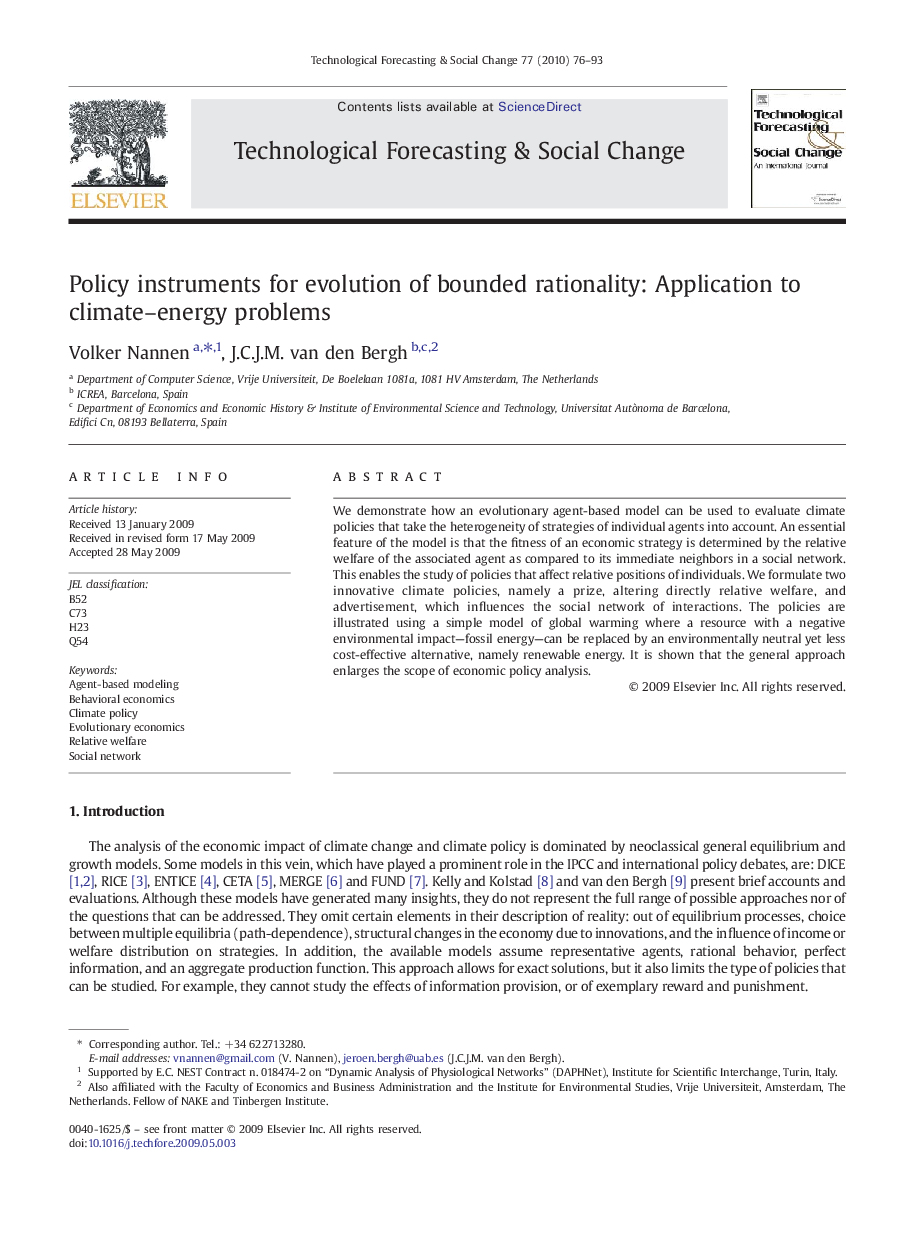| Article ID | Journal | Published Year | Pages | File Type |
|---|---|---|---|---|
| 897343 | Technological Forecasting and Social Change | 2010 | 18 Pages |
We demonstrate how an evolutionary agent-based model can be used to evaluate climate policies that take the heterogeneity of strategies of individual agents into account. An essential feature of the model is that the fitness of an economic strategy is determined by the relative welfare of the associated agent as compared to its immediate neighbors in a social network. This enables the study of policies that affect relative positions of individuals. We formulate two innovative climate policies, namely a prize, altering directly relative welfare, and advertisement, which influences the social network of interactions. The policies are illustrated using a simple model of global warming where a resource with a negative environmental impact—fossil energy—can be replaced by an environmentally neutral yet less cost-effective alternative, namely renewable energy. It is shown that the general approach enlarges the scope of economic policy analysis.
